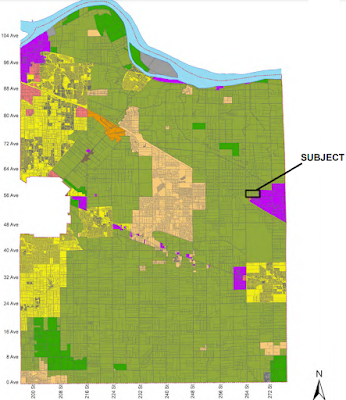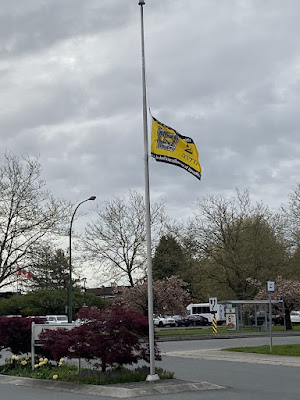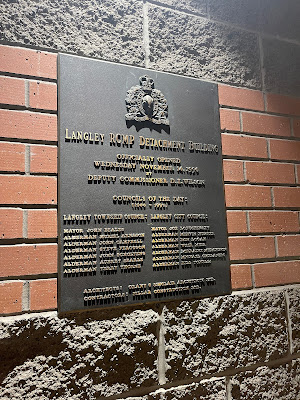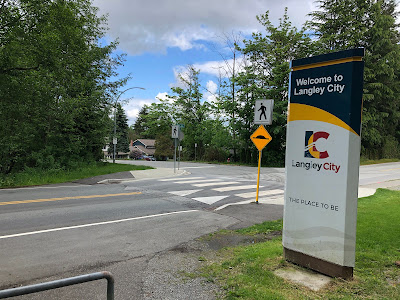The central tenet of the
Metro Vancouver Regional Growth Strategy
is to preserve rural, agricultural, conservation, and recreational lands. All
municipalities in our region agree to this central tenet. Our region
implements this central tenet through the Urban Containment Boundary.

|
|
Metro Vancouver Urban Containment Boundary. Select the map to enlarge.
|
Having an Urban Containment Boundary protects local food production, reduces
greenhouse gas emissions and energy use from transportation, help sequesters
carbon by maintaining greenspace, and encourages the co-location of housing,
jobs, and services in walkable, bikeable, and transit-accessible
neighbourhoods. For local governments, it also reduces the cost of providing
services, meaning lower property taxes over the long term. The Urban
Containment Boundary prevents sprawl.
Because of the importance of the Urban Containment Boundary, if a local
government wants to adjust it, it requires the support of a two-thirds
weighted vote of the Metro Vancouver Regional District Board (made up of
representatives from Tsawwassen First Nation and all municipalities.) There
are some exceptions.
Our region has an
industrial land shortage. Industrial lands are important for our region. Point in case, while
industrial land is only four percent of the region’s land base, over 25
percent of jobs are on industrial lands.
Industrial lands are also regionally designated and protected. Changing from
industrial land use to another land use requires a 50%+1 weighted vote of the
Metro Vancouver Regional District Board. This vote is a barrier to converting
industrial land to other uses, though the barrier is lower than changing the
Urban Containment Boundary.
Interestingly, there is a shortcut for growing the Urban Containment Boundary
in the current version of our Regional Growth Strategy and the previous
version. You can convert land next to the Urban Containment Boundary to
industrial land with only a 50%+1 weighted vote of the Metro Vancouver
Regional District Board, not a two-thirds weighted vote.
This shortcut is playing out near Gloucester Industrial Park in the Township
of Langley, where the
Township has an application with the Metro Vancouver Board
to change 14.59 hectares of regionally designated agricultural land to
industrial land.

|
|
Location of Conwest Group lands near Gloucester Industrial Park pending
Metro Vancouver Board vote to convert to industrial land. Select the map
to enlarge. Source: Township of Langley
|
Most agricultural land in Metro Vancouver is within the Agricultural Land
Reserve, which the provincial
Agricultural Land Commission
controls. The proposed conversion of this 14.59 hectares of land started with
Agricultural Land Commission exclusion requests from 2006, 2010, and 2020.
While the Commission denied
the 2006 and 2010 requests,
the 2020 request
for exclusion was successful. This exclusion is what allowed the current
regional request.
As noted by regional district staff, this land will help grow the industrial
land base constrained in this region. The land is near a major highway and
railway corridor.
On the other hand, Gloucester Industrial Park is only accessible by private
automobiles and is surrounded by the Agricultural Land Reserve. Expansion of
that area will increase vehicle kilometres travelled and greenhouse gas
emissions. It will also put pressure to exclude further land from the
Agricultural Land Reserve. Converting rural lands to industrial use can
encourage sprawl.
In the recent past, this played out with
South Campbell Heights
in Surrey, with former agricultural land converted to employment lands and
growing the Urban Containment Boundary.
Expanding the Urban Containment Boundary at two locations will not degrade
regional growth policies in Metro Vancouver when viewed in isolation. Still,
the cumulative effects of changing the Urban Growth Boundary over time degrade
regional growth policies and objectives.
In this post, I’m not speaking for or against the changes proposed near
Gloucester Industrial Park or the change that occurred in South Campbell
Heights in Surrey. I want to raise awareness that, as a region, there is now a
trend of converting former agricultural and rural lands for employment and
industrial uses. If this is the new normal for our region, we may want to
consider how we integrate these new employment and industrial areas into the
broader regional planning context of Metro Vancouver on how they can still
support addressing climate change and creating compact centres connected by
high-quality transit.





















